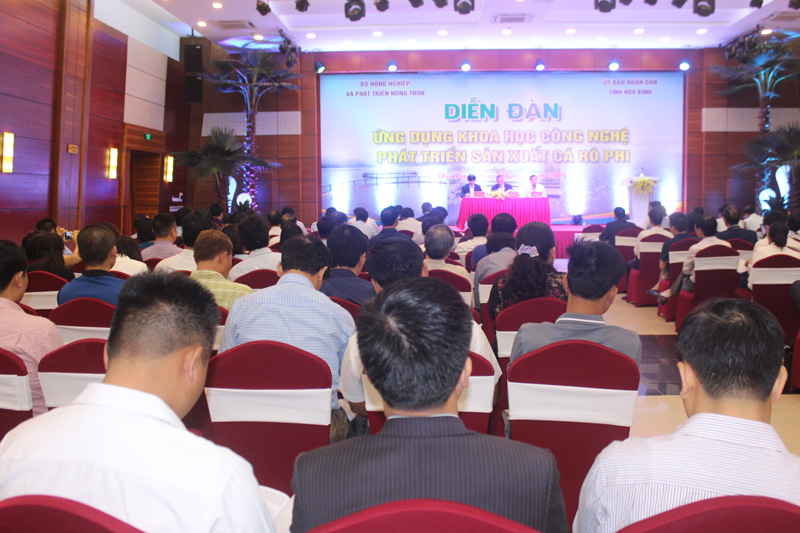


Attending the event were Deputy Minister of Agriculture and Rural Development Phung Duc Tien and Vice Chairman of the provincial People’s Committee Nguyen Van Dung.

An overview of the forum
Speaking at the event, Dung said that to develop caged fish farming, the province will step up production connectivity between local households, form fisheries co-operatives linked with processing and consumption enterprises inside and outside the province with a hope to export products to the region and the world.
Hoa Binh will expand the scale of caged fish breeding, and develop potential varieties, including the two main types of male tilapia and red tilapia.
The MARD said that the nation has more than 250 production-business establishments of breeding tilapia. Last year, localities produced over 1.2 billion small young tilapia and over 500 million breeding tilapia, meeting around 75 percent of the demand. The farming area of tilapia for sale reaches 30,000 hectares, using over 1.2 million cubic metres of cages, mainly in Hai Duong, Bac Giang, Bac Ninh, Phu Tho, Hoa Binh and Hanoi, and several Mekong Delta provinces. In 2018, the volume hit 255,000 tonnes, a year-on-year rise of 1.1 percent.
At the forum, delegates discussed and shared information about development orientations for tilapia in Vietnam, processing and consumer market situations, the result of science and technology transfer, and the development of a programme to choose tilapia varieties.